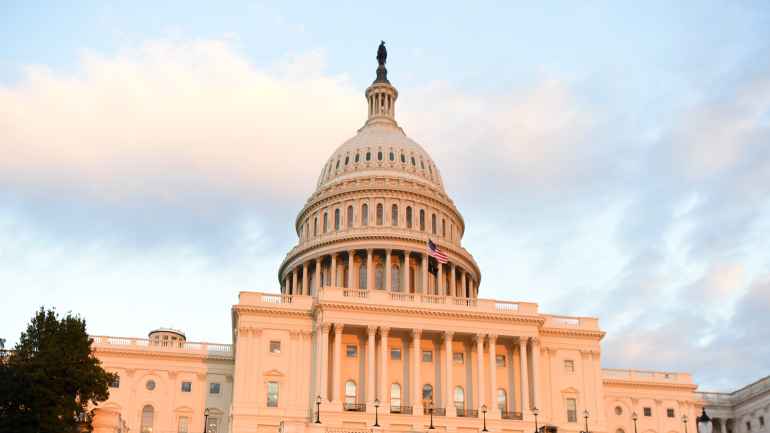Where college sports federal legislation stands as Democratic senators push back on SCORE Act
Senate Democrats see a better future for the SAFE Act, which comes with challenges of its own

While college athletics leaders continue to hope for a federal solution to a wide range of issues, including NIL and player eligibility questions, they shouldn't hold their breath that one is coming soon.
A trio of Senate Democrats -- Sens. Maria Cantwell, Richard Blumenthal and Cory Booker -- made very clear in a Zoom conference call Tuesday that they won't support the SCORE Act and that it is unlikely to pass. "I can pretty well guarantee the SCORE Act ain't going to make it through the United States Senate," Blumenthal said.
"The SCORE Act is really ... not what we think is for the athlete, let's just put it that way," Cantwell said. "It is not the solution for the athlete. You can say there's a lot of people scoring. Two big divisions and their commissioners, they are scoring. The NCAA, they're scoring. And now, apparently, private equity is scoring. Who is not scoring? The athletes."
Blumenthal, the senior senator of Connecticut, said "nothing will pass if it is purely partisan" before the midterm elections in 2026. The NCAA and Power Four conferences have championed the SCORE Act (Student Compensation and Opportunity through Rights and Endorsements), and there was a time it had momentum, even making it out of its House of Representatives committee, but it has still yet to be introduced for a formal House vote. NCAA president Charlie Baker took an optimistic view earlier this week when he said the SCORE Act had "pretty good chance of making it through the House at some point."
Even if it were to pass the House, it would need 60 votes to pass through the Senate. Republicans control both chambers but would need seven Democrat senators to vote for it, which has long been viewed as unlikely.

Cantwell, Blumenthal and Booker have sponsored legislation called the SAFE Act (Student Athlete Fairness and Enforcement) which, amongst other things, would amend the Sports Broadcasting Act to allow college conferences to pool broadcasting rights. This has been a popular cause for Texas Tech billionaire booster Cody Campbell, who has spent considerable money airing television commercials against the passage of the SCORE Act. However, pooling TV rights is a non-starter for power conferences like the Big Ten and SEC.
While Blumenthal said Tuesday he thought the SAFE Act's passage was "possible but uphill," it'll face major challenges getting out of the Senate Commerce committee. Cantwell is the ranking member but Sen. Ted Cruz controls the group as chairman and won't sherpa the SAFE Act to a floor vote. Conversations between the two sides on a possible compromise haven't gone anywhere so far, though Cantwell did say Tuesday after a conversation with Cruz she thought a hearing on it was possible.
"Quite frankly, we've made no headway or at least very minimal progress with (Cruz), which is why I think he's advancing the SCORE Act in the way that he is," Blumenthal said.
In addition to amending the Sports Broadcasting Act, the SAFE Act would guarantee athletes scholarships for 10 years after their eligibility ends, require five years of post-eligibility medical coverage, cap player agent compensation at 5% and limit athletes to two transfers, among other things. It has garnered the support of the professional sports athlete unions and had representatives from the NBAPA, NFLPA and NSWLPA on the call.
The SCORE Act focuses on codifying the House settlement terms, prohibits athletes from becoming employees, provides a national standard rather than the current patchwork of NIL laws and provides a limited antitrust exemption that has long been a major desire for the NCAA and others. This is the preferred legislation for the NCAA and the power conferences, and you may have even seen recent commercials from the SEC urging the passage of the SCORE Act.
Both Republicans and Democrats agree that something needs to be done to help fix the litany of issues college sports are currently sorting through. The question will be whether they can ever find enough of a middle ground on a divisive set of issues to pass a bipartisan bill. With where things stand currently, that looks like a long, challenging road.

















